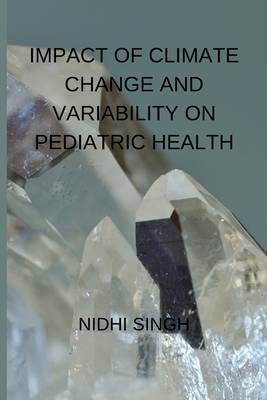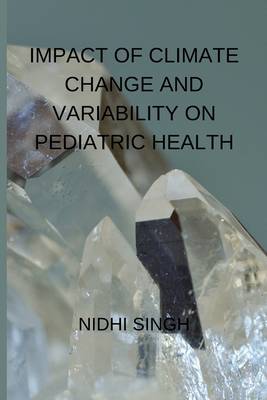
- Retrait gratuit dans votre magasin Club
- 7.000.000 titres dans notre catalogue
- Payer en toute sécurité
- Toujours un magasin près de chez vous
- Retrait gratuit dans votre magasin Club
- 7.000.0000 titres dans notre catalogue
- Payer en toute sécurité
- Toujours un magasin près de chez vous
Description
There is ample of evidence of significant influence of climate variables on mortality and morbidity due to extreme temperature, air pollution and cardiovascular disease, upper and lower respiratory tract infections like influenza, asthma and pneumonia, waterborne disease, such as diarrhea and vector-borne diseases such as malaria, dengue, Chikungunya. Climate change is expected to influence all the climate variables at different scales that in turn will alter the future development, distribution and abundance of disease causing vectors and pathogens. Climate change will also influence host behaviour . Several global studies have estimated the effect of climate change and variability in present and future scenario but the evidences from developing and underdeveloped nations are scarce. Also not all spectrum of health effects was touched that could emerge as an important problem in future. Very few studies have been made to study the influence of climate on paediatric health over northern part of India. This region has gained the attention in the scientific community due to high morbidity and mortality rate in children under 5 years of age and due to very high pollution load. Therefore, it is important to understand the association of climatic parameters and human health and thereafter to estimate the degree of influence in future scenario in northern part of India by using the statistical modeling. The outcome of this study will be beneficial for the government and policy makers to formulate the plans and mitigation options which may benefit the health of individuals in the population
Spécifications
Parties prenantes
- Auteur(s) :
- Editeur:
Contenu
- Nombre de pages :
- 202
- Langue:
- Anglais
Caractéristiques
- EAN:
- 9798210049759
- Date de parution :
- 19-02-22
- Format:
- Livre broché
- Format numérique:
- Trade paperback (VS)
- Dimensions :
- 156 mm x 234 mm
- Poids :
- 290 g

Les avis
Nous publions uniquement les avis qui respectent les conditions requises. Consultez nos conditions pour les avis.






